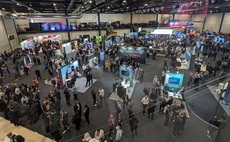John Engates argues that the software giants are in dire need of a clear public cloud roadmap
Software giants SAP and Oracle are "panicking" about their late entry into the cloud market, and remain too reliant on on-premise software integrations, according to John Engates, CTO of cloud prov...
To continue reading this article...
Join Computing
- Unlimited access to real-time news, analysis and opinion from the technology industry
- Receive important and breaking news in our daily newsletter
- Be the first to hear about our events and awards programmes
- Join live member only interviews with IT leaders at the ‘IT Lounge’; your chance to ask your burning tech questions and have them answered
- Access to the Computing Delta hub providing market intelligence and research
- Receive our members-only newsletter with exclusive opinion pieces from senior IT Leaders




















